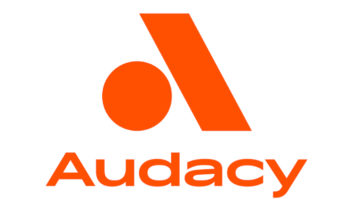Audacy is set to open talks with several groups of creditors to negotiate more favorable terms and prevent the triggering of default proceedings possibly as soon as this summer, according to a story in the Wall Street Journal.
The company had signaled earlier that its financial position might force it to begin talks with creditors to restructure debt. Some analysts worry that the company is teetering on the brink of bankruptcy.
The WSJ reported that two groups of creditors recently signed nondisclosure agreements in order to begin talks about how to handle the company’s significant burden. Audacy, the country’s second largest radio company based on billing, is saddled with approximately $2 billion in debt from its 2017 merger with CBS Radio, according to a filing with the U.S. Securities and Exchange Commission.
Audacy has 230 radio stations in 46 markets. It recently was delisted by the New York Stock Exchange because of its low stock price; trading continues over the counter. It recently executed a 1-for-30 reverse stock split to pump up the price, but now the company is approaching a deadline that could trigger a non-compliance clause in its loan covenant, according to the WSJ.
According to SEC filings, about $632 million of debt also comes due in July of next year. That becomes even more daunting given uncertainty in the U.S. economy and in advertising, analysts say.
In May CFO Rich Schmaeling addressed the issue of solvency: “The current (ad market) outlook increases the risk that we may not be able to sustain compliance with maintenance covenants over the next 12 months and this uncertainty led the company to include a disclosure about its ability to continue as a going concern in the footnotes to its (Q1) financial statements.”
The Philadelphia-based company has pushed back against suggestions it might need bankruptcy reorganization, but Schmaeling said at the time that Audacy was prepared to commence discussions with lenders to explore refinancing and strategy to manage its liabilities. He told analysts at the time: “Our relationship banks have historically been willing to amend covenants to provide relief during recessionary periods, but there can be no assurance that they will be willing to provide such relief in the future.”
Some market analysts have openly questioned Audacy’s capital structure and whether it can support the company. During the May investor call, Craig Huber of Huber Research Partners questioned Audacy’s approach. “Why are costs not down a lot more? I know you are trying to preserve the company for the long term, but I’m worried you won’t make it to the medium term let alone the long term,” Huber said.
Jerry Del Colliano, editor of the Inside Music Media newsletter, has written critically of Audacy CEO David Field for his managing of the debt. Del Colliano wrote, “Audacy is between a rock and a hard place – it must come up with a pre-packaged reorganization or they default and wind up in bankruptcy, the outcome of which they cannot control.”
Del Colliano has been predicting a restructuring for over a year; he contends some first-tier investors appear to be unhappy with the company. “(Creditors) are in a litigious mood. Some senior lenders have hired Gibson, Dunn & Crutcher, a prominent law firm, and second lien bondholders have hired Akin Gump Strauss Hauer & Feld to protect them.” He said Audacy has hired PJT Partners to help it navigate a path to avoid bankruptcy; Cumulus used the firm earlier to guide it through a pre-planned restructuring.
Audacy has downsized in recent years through job reductions and real estate sales in an effort to stave off a financial restructuring in or out of court.
An email to its corporate spokesperson seeking comment was not immediately returned.









